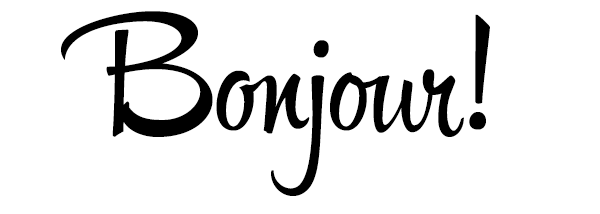French Classroom:Vocabulary
| English | French |
|---|---|
| Monday | lundi (pronounced: lun-dee) |
| Tuesday | mardi (pronounced like: Mardi Gras) |
| Wednesday | mercredi (pronounced: mer-cra-dee) |
| Thursday | jeudi (pronounced: ju-dee) |
| Friday | vendredi (pronounced: von-dra-dee) |
| Saturday | samedi (pronounced: sa-mey-dee) |
| Sunday | dimanche (pronounced: dee-man-sh) |

French Months of the Year
This lesson will teach you how to say the months of the year in French. The names of the months are considered to be international words. They are fairly similar in French and English languages and should be easy for you to learn. Note that in French, the months are not capitalized unless they occur in the beginning of a sentence. Besides that, all months in French are masculine.
| French word | English translation | Pronunciation | |
| janvier | January | zhah(n)-vyay | |
| février | February | fay-vree-yay | |
| mars | March | mahrs | |
| avril | April | ah-vreel | |
| mai | May | meh | |
| juin | June | zhwa(n) | |
| juillet | July | zhwee-eh | |
| août | August | oo or oot | |
| septembre | September | sehp-tah(n)br | |
| octobre | October | ohk-tohbr | |
| novembre | November | noh-vah(n)br | |
| décembre | December | day-sah(n)br |
French Prepositions Used with Months
In order to say that something is going to happen “in” a certain month, French speakers use the preposition “en”, which is pronounced as [ah(n)]. If you’d like to say that something has been happening “since” a certain month, the preposition “depuis” should be used. The table below gives a few examples:| depuis décembre | since December | duh-pwee day-sah(n)br | |
| un mois | a month | uh(n) mwah | |
| une année | a year | ewn ah-nay | |
| un an | one year | uhN nahN |
Phrases and examples
Il y a douze mois dans l’année There are twelve months in a year Je suis né le 10 décembre I was born on the 10th of December
Comments
Unlike English, the names of the months do not begin with a capital letter.
As you can read and listen to the sounds of the words for the months in French, you will notice that they are very similar to English and should not give you any problems in learning by heart. Listen and repeat as often as possible.
Most Essential Everyday Expressions
| It’s / That’s | c’est | /sɛ/ | There is/are | il y a | /il i a/ |
| There is/are | voilà | /vwala/ | Here is/are | voici | /vwasi/ |
| and | et | /e/ | always | toujours | /tuʒuʀ/ |
| but | mais | /mɛ/ | often | souvent | /suvɑ̃/ |
| now | maintenant | /mɛ̃tnɑ̃/ | sometimes | quelquefois | /kɛlkəfwa/ |
| especially | surtout | /syʀtu/ | usually | d’habitude | /dabityd/ |
| except | sauf | /sof/ | also, too | aussi | /osi/ |
| of course | bien sûr | /bjɛ̃ syʀ/ | again | encore | /ɑ̃kɔʀ/ |
| so so | comme ci, comme ça | /kɔm si, kɔm sa/ | late | en retard | /ɑ̃ʀətaʀ/ |
| not bad | pas mal | /pa mal/ | almost | presque | /pʀɛsk/ |
| book | le livre | /lə livʀ/ | friend (fem) | une amie | /y nami/ |
| pencil | le crayon | /lə kʀɛjɔ̃/ | friend (masc) | un ami | /œ̃ nami/ |
| pen | le stylo | /lə stilo/ | woman | une femme | /yn fam/ |
| paper | le papier | /lə papje/ | man | un homme | /œ̃ nɔm/ |
| dog | le chien | /lə ʃjɛ̃/ | girl | une fille | /yn fij/ |
| cat | le chat | /lə ʃa/ | boy | un garçon | /œ̃̃ gaʀsɔ̃/ |
| money | l’argent (m) | /laʀʒɑ̃/ | job / work | le travail | /lə tʀavaj/ |
]]>


